Greater Manchester Clean Air Zone plans move forward
- Published
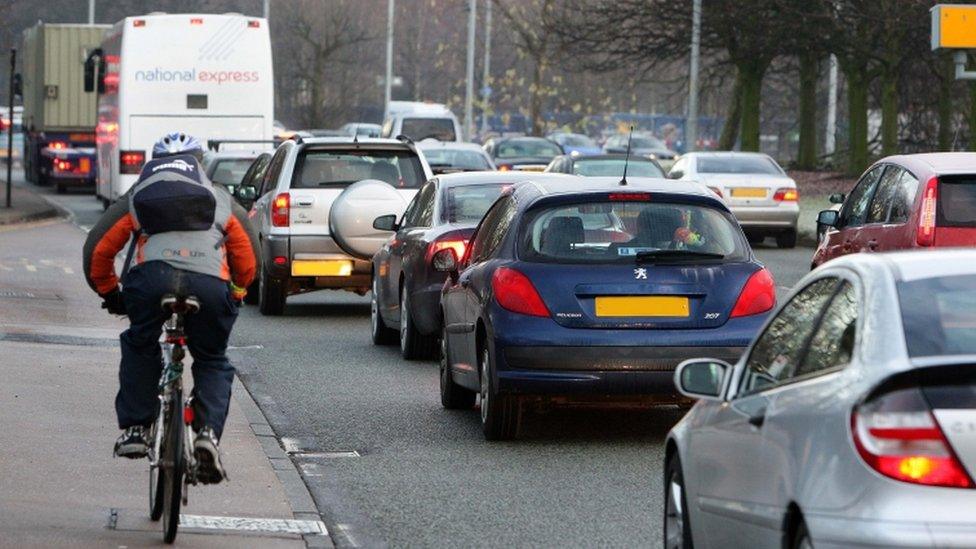
The Clean Air Zone scheme is due to come into force next year
Plans to charge high-polluting vehicles to drive across Greater Manchester are expected to come into force next year.
Vans, buses, coaches, taxis, private-hire vehicles and lorries that fail to meet emission standards will be affected by the Clean Air Zone scheme.
Daily charges for heavy goods vehicles (HGVs) and buses are due to be rolled out from May 2022, with other vehicles affected from May 2023.
Tackling pollution cannot be ignored any more, the region's mayor said.
"Coming out of the pandemic, I think we've got to get a lot more serious about people's health and health inequalities that we have in this city region and across the country," Andy Burnham added.
"We just shouldn't accept any more things that harm the health of our residents.
"It's a fact that it's the poorest kids in the poorest communities that have to breathe in the most polluted air."
Leaders from all 10 local authorities will be asked to endorse the city-region's Clean Air Plan at the next Greater Manchester Combined Authority (GMCA) meeting on 25 June.
This will be followed by approval by individual councils at their meetings.
Under the plans, HGVs, buses and coaches will be charged £60 a day to drive within the zone, with vans paying £10 and taxis and private hire vehicles paying £7.50.
Failure to pay will result in a £120 fine on top of the original fee.
Privately owned vehicles will not fall under the Clean Air Zone scheme.
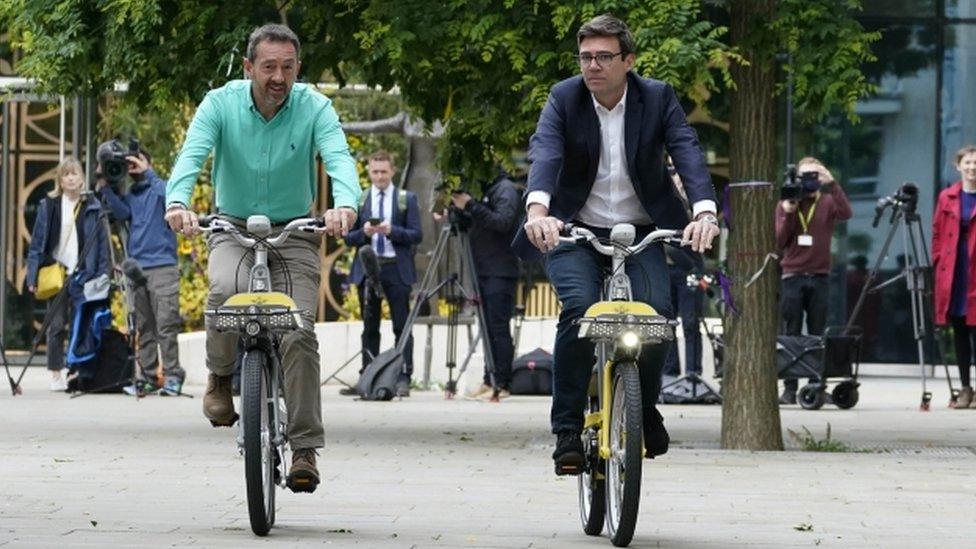
About 1,500 bikes and 300 e-bikes will available for public use in Manchester, Salford and Trafford by mid-2022 under the scheme
The zone was supposed to come into effect this year but was delayed due to the Covid pandemic and a standoff between councils and the government over funding, the Local Democracy Reporting Scheme said.
But GMCA has now received £150m to help businesses and individuals with the transition.
About £120m of the funding will help drivers pay for new cleaner, compliant vehicles or upgrade their old ones.
The remainder of the money will fund infrastructure such as cameras to monitor the roads.
Drivers of HGVs, coaches and buses will be able to apply for up to £16,000 to retrofit their vehicles from November.
Taxis, private hire vehicles, lorries and minibuses can bid for up to £5,000.
Taxi and private hire drivers of vehicles which meet "Euro 6" emission standards will also be allowed to continue using their cars and will not need to switch to electric vehicles.
Charges came into force last week for drivers entering Birmingham's Clean Air Zone, while Liverpool has moved closer to introducing a congestion charge for the city centre as part of efforts to improve air quality.

Why not follow BBC North West on Facebook, external, Twitter, external and Instagram, external? You can also send story ideas to northwest.newsonline@bbc.co.uk, external
Related topics
- Published14 June 2021
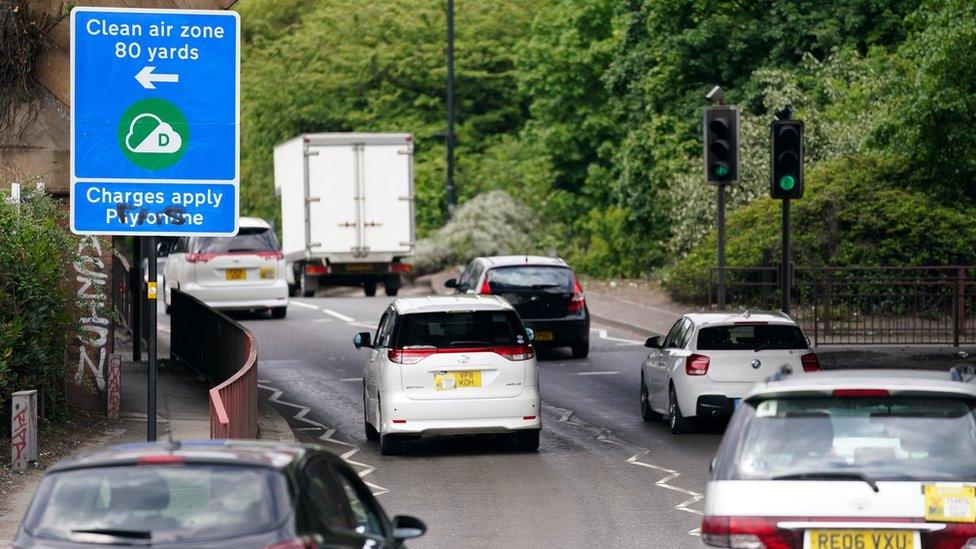
- Published19 March 2021
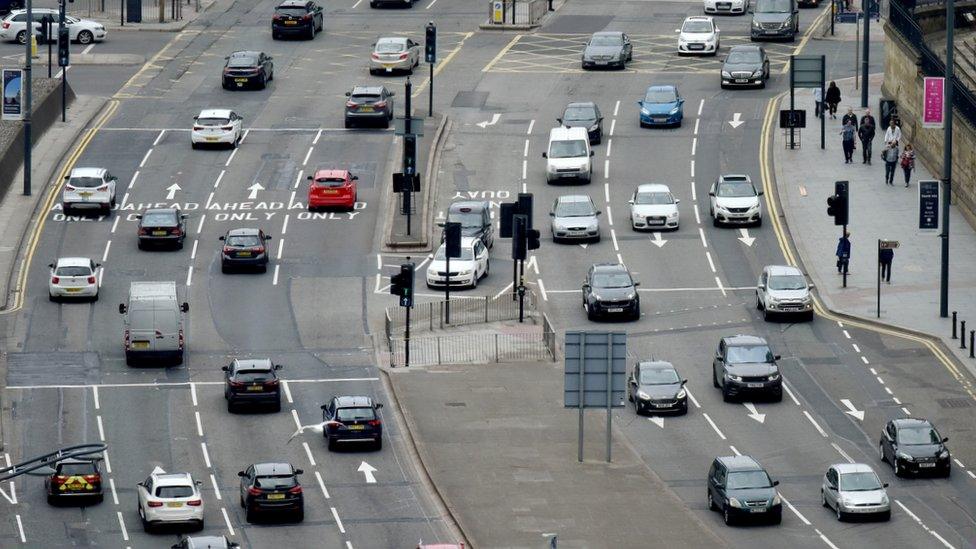
- Published24 December 2020
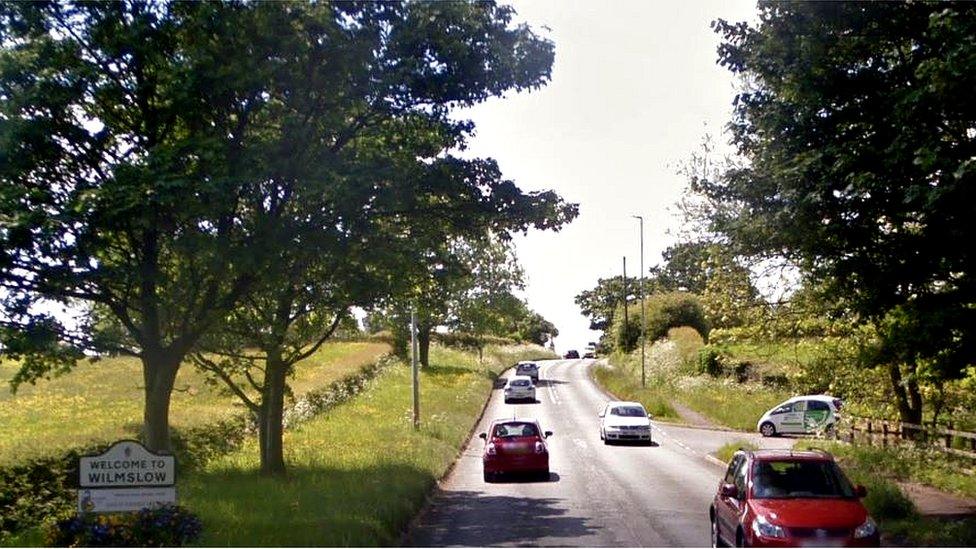
- Published16 July 2019
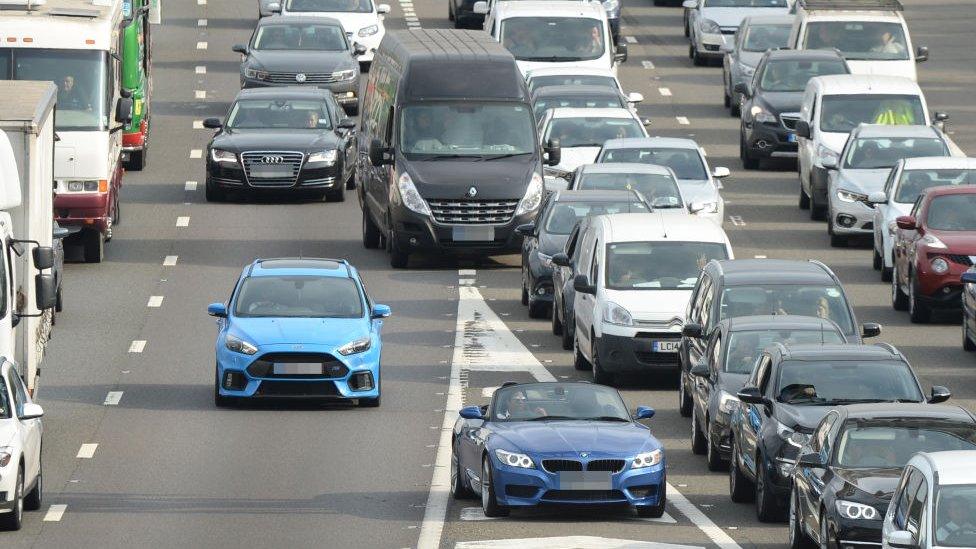
- Published1 March 2019
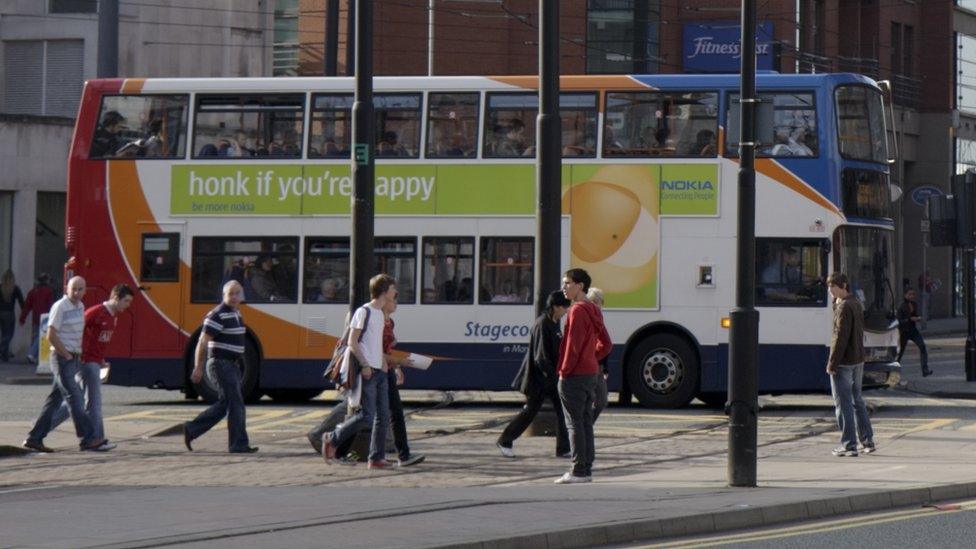
- Published26 February 2019
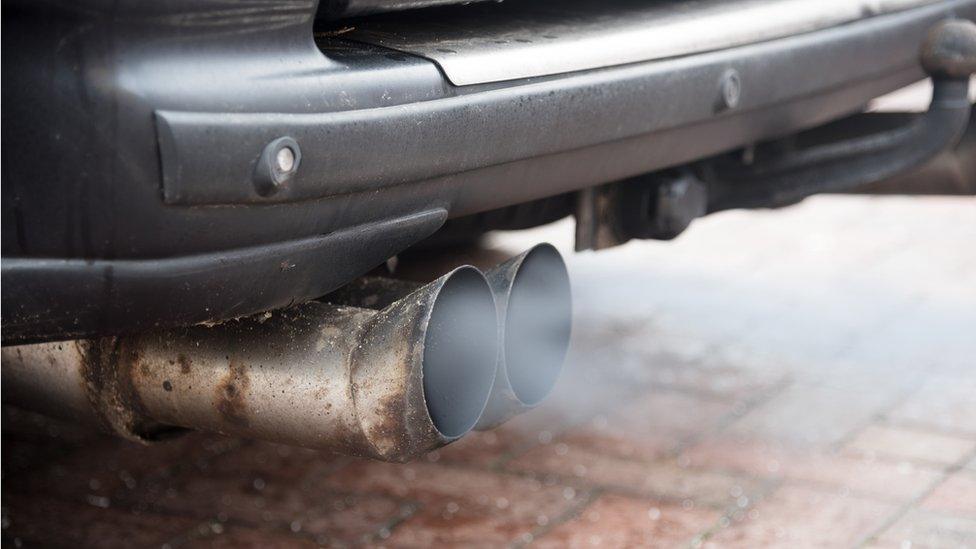
- Published8 September 2018
